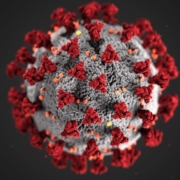EPA Announces Accelerated Action on Four Organophosphate Pesticides Based on Updated Exposure Assessments
This original announcement was published by the EPA on March 15, 2023. Click here for more information.
Today, the U.S. Environmental Protection Agency (EPA) is announcing an effort to expedite protections on some high-risk uses of four organophosphate pesticides. The Agency is releasing the updated occupational and non-occupational spray drift exposure risk assessments for these four pesticides – diazinon, ethoprop, tribufos and phosmet – several years ahead of the scheduled completion of EPA’s work on these chemicals in order to seek early mitigation prior to completing the standard registration review process.
“The science is clear: some uses of these four pesticides pose a serious health risk to the people that are exposed to them,” said Michal Freedhoff, Assistant Administrator for the Office of Chemical Safety and Pollution Prevention. “That’s why we’re taking early action now. While we know there’s still a lot of work to finish our review of these pesticides, today’s announcement helps deliver on our promise to protect farmworkers and uphold our commitment to environmental justice.”
Diazinon, ethoprop, tribufos and phosmet are part of the group of pesticides known as organophosphates. These pesticides are used in both agricultural (e.g., fruit and nut trees, vegetables and herbs, cotton) and non-agricultural settings for a range of purposes. Diazinon and phosmet controls insects, ethoprop controls worms and other soil pests, and tribufos defoliates cotton prior to harvest. These pesticides are currently undergoing registration review, a process that requires EPA to reevaluate pesticides every 15 years to ensure that as the ability to assess risk evolves and as policies and practices change, pesticides continue to meet the statutory standard of causing no unreasonable adverse effects on human health or the environment.
As part of the registration review process, EPA assessed the potential risks to people who mix, load, and apply the four pesticides, farmworkers who work with crops that have been treated with these pesticides, and bystanders who are potentially exposed to spray drift, including families living in agricultural communities.
The Agency identified the following potential risks for each pesticide:
- The diazinon assessment identified potential risks to workers who mix, load, and apply the pesticide, and to bystanders (including farmworkers) who could be exposed to spray drift.
- The ethoprop assessment identified potential risks to workers who mix, load, and apply the pesticide, and to bystanders (including farmworkers) who could be exposed to spray drift.
- The phosmet assessment identified potential risks to workers who mix, load, and apply the pesticide, workers conducting certain post-application activities (e.g., weeding, hand harvesting, or workers re-entering treated areas), and bystanders (including farmworkers) who may be exposed to spray drift.
- The tribufos assessment identified potential risks to workers who mix, load, and apply the pesticide, and to bystanders (including farmworkers) who may be exposed to spray drift.
Although registration review for these pesticides was not scheduled to be completed until 2025-2026, after recognizing that several of uses of these four pesticides present significant human health risks, EPA is taking accelerated and early action to address these risks. This will allow the Agency to put important protections in place quickly for some high-risk uses of these pesticides, while allowing time to work through the complicated scientific issues that need to be addressed before completing registration review.
EPA is currently meeting with the technical registrants of the four pesticides about early risk mitigation. The types of mitigation under consideration include cancellation of uses and formulation types, prohibition of application methods, increased personal protective equipment for pesticide handlers, spray drift requirements, and new restrictions on when workers can reenter treated fields and perform harvesting and other types of post-application activities. The Agency is asking the registrants to submit label amendments that reflect the necessary risk mitigation measures for each of these four organophosphates and is prepared to expedite label reviews in order to implement the protections as quickly as possible.
The updated exposure risk assessments are now available in the registration review dockets, EPA-HQ-OPP-2008-0351 (diazinon), EPA-HQ-OPP-2008-0560 (ethoprop), EPA-HQ-OPP-2008-0883 (tribufos) and EPA-HQ-OPP-2009-0316 (phosmet) at www.regulations.gov. Given the expedited nature of this effort, the Agency is not taking comment on these assessments. Stakeholders will have an opportunity to comment on the four occupational and non-occupational spray drift risk assessments when the cases progress through the next step of registration review with the proposed interim decision, which will include the full updated human health risk assessment for each. EPA expects to issue the proposed interim decisions in fiscal year 2025 (tribufos) and fiscal year 2026 (ethoprop, diazinon and phosmet).







